Search Results
Showing results 1 to 20 of 267

Cleaning with Dirt
Source Institutions
Learners build a filter from old soda bottles and dirt. They create polluted water, and pour it through their filter to clean it.

Dripping Wet or Dry as a Bone?
Learners investigate the concept of humidity by using a dry and wet sponge as a model. They determine a model for 100% humidity, a sponge saturated with water.
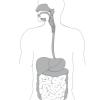
Digestion
Source Institutions
In this food science activity, learners explore digestion and proteins by observing the action of meat tenderizer on luncheon meat.
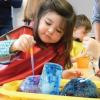
Icy Investigations
Source Institutions
In this activity, learners of all ages can enjoy experimenting with ice. Try this experiment at the kitchen table or in the great outdoors to encourage budding scientists to experiment with ice.
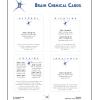
Crossing the Synaptic Gap
Source Institutions
In this neuroscience activity, learners conduct a simulation to demonstrate how multiple incoming signals influence the action of neurons.
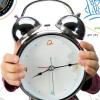
Modeling Day and Night
Source Institutions
In this activity (on page 1 of the PDF), learners make a "mini-globe" to investigate the causes of day and night on our planet.
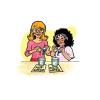
Matter on the Move
Source Institutions
Learners observe and conduct experiments demonstrating the different properties of hot and cold materials.

Soap Bubble Shapes
Source Institutions
Learners explore three-dimensional geometric frames including cubes and tetrahedrons, as they create bubble wands with pipe cleaners and drinking straws.

Physics Tug of War
Learners set up books with rubber bands stretched between the books. When two identical books are stretched apart and released, they move back toward each other an equal distance.
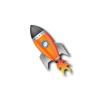
Rocket Launchers
Source Institutions
In this activity, learners work with an adult to build a rocket and launcher out of a plastic 2-liter bottle, flexible plastic hose, plastic tubing, toilet paper tube, and duct tape.
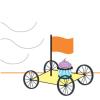
Cupcake Delivery
Source Institutions
In this design challenge, learners will create wind-powered contraptions to transport a load, such as a cupcake or another small object, and test to see if they work.
Bee Talk
Source Institutions
In this activity, learners smell bottles containing bee pheromone molecules (or herb/spice extracts as a substitute). Bees release these molecules to send messages to each other.
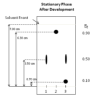
Chromatography Can Separate!
Source Institutions
In this chemistry activity, learners use thin layer chromatography to determine the molecular composition of different markers.
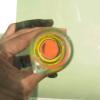
Rotating Light
Source Institutions
In this activity, learners explore what happens when polarized white light passes through a sugar solution.
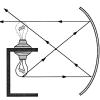
Touch the Spring (Lightbulb)
Source Institutions
In this activity, a lightbulb is placed in front of a concave mirror. The actual lightbulb is not visible to the viewer, but the viewer can see the mirror image of the lightbulb formed in space.
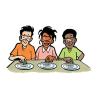
M&M's in Different Temperatures
Source Institutions
Learners design their own experiment to investigate whether the temperature of the surrounding water affects the rate at which the colored coating dissolves from an M&M.
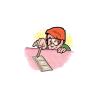
Exploring Baking Powder
Source Institutions
In this activity, learners examine baking powder, a combination of three powders: baking soda, cream of tartar, and cornstarch.
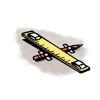
Comparing the Density of an Object to the Density of Water
Source Institutions
Learners compare the weight of equal volumes of wax, water, and clay. Learners discover that since the wax weighs less than an equal volume of water, it is less dense than water and will float.
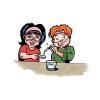
Formation of a Precipitate
Source Institutions
Learners create hard water by mixing Epsom salt and water. Then they compare what happens when soap solution is mixed with hard water and regular water.
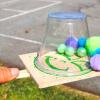
Marble Game
Source Institutions
In this activity, learners construct a simple game to test their hand-eye coordination and steadiness of hand.
